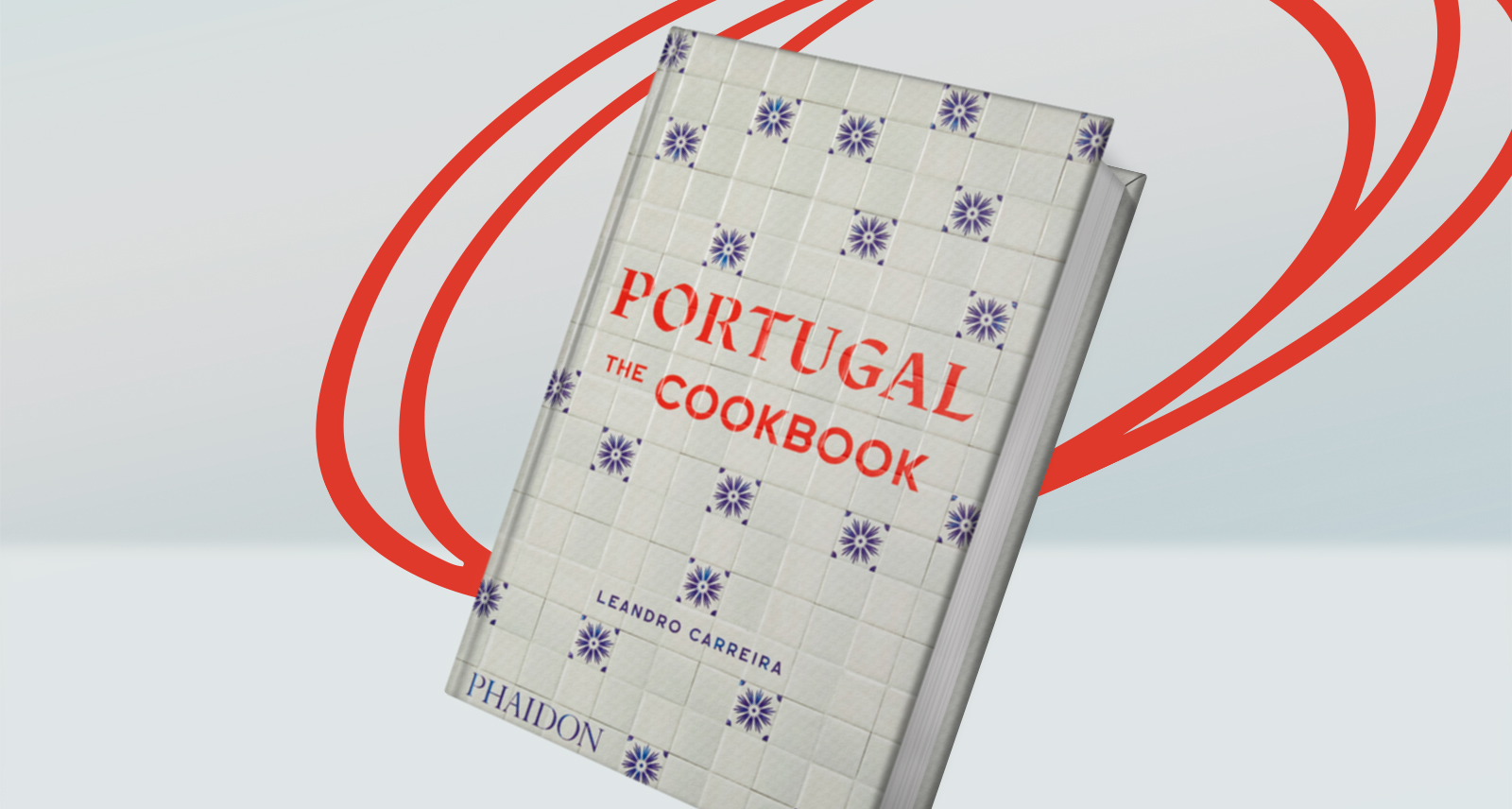Chef Leandro Carreira on Sustainable Cuisine and Portuguese Pride
They say you can’t go home again — especially after you’ve translated 550 of your motherland’s signature dishes into a highly anticipated cookbook. Inevitably, there’ll be someone at the grocery store who’s convinced that their family’s recipe for açorda Alentejan is better than the one published on page 34, but, luckily, Leandro Carreira is prepared for this type of passionate feedback. “I’m ready to make some enemies,” laughs the Leiria-born, London-based chef, whose first culinary tome, Portugal: The Cookbook, arrived in stores earlier this year. “Hopefully they don’t take away my passport.”
Of course, for every Portuguese grandmother armed with some good-natured criticism, there will surely be a baker’s dozen locals who embrace the book as a heartfelt celebration of what makes their country’s cooking so special — and worthy of much broader recognition. (It helps, too, that Carreira’s research process included consultations with no shortage of Portuguese grandmothers.)
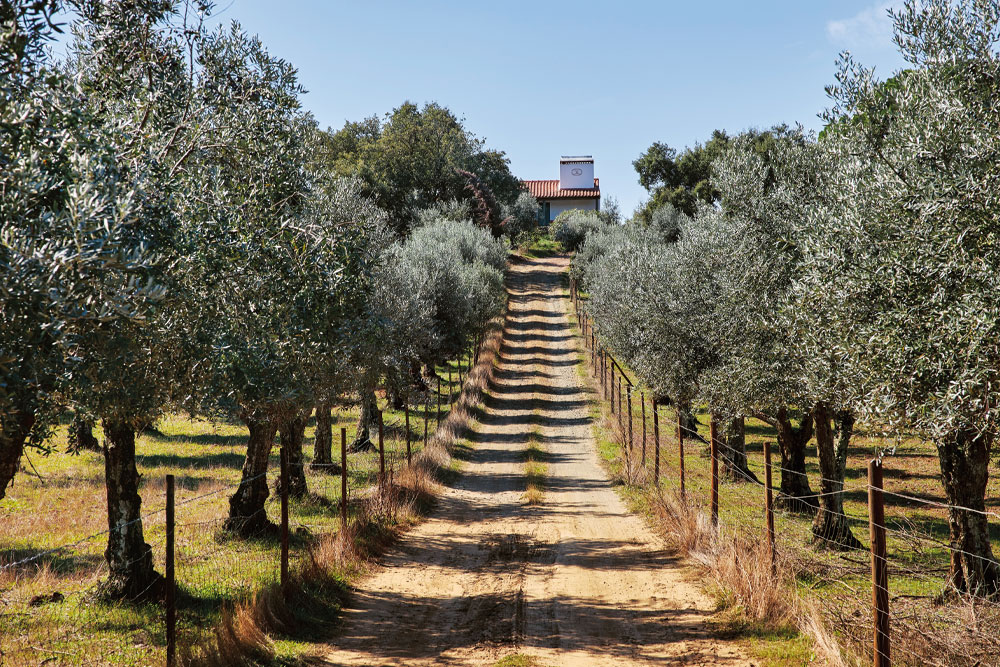
Granted, when Phaidon first approached him to boil his country down into a cookbook, Carreira didn’t see himself as the ideal candidate. Sure, he’s Portuguese. And as the executive chef of breakout London restaurant The Sea, The Sea (which recently opened a second location), he’s a widely celebrated talent. But he’s also an expat who hasn’t lived in Portugal for two decades. Back when he was fresh out of cooking school — a spontaneous pivot away from his original pursuit of architecture — Carreira spent a few years working in Lisbon kitchens. “It was a different landscape 25 years ago,” he says. “There were a couple of great Portuguese restaurants that felt impenetrable, and the restaurants with German chefs didn’t have Portuguese people in the kitchens. I just knew I needed to get out of there.” Besides, a little travel can do a young chef some good.
After stints in the UAE, Switzerland, and Spain, he accepted a sous-chef job at London’s Viajante. As he settled into British life, Carreira watched from afar as Portugal became the buzzy travel destination that it always deserved to be. But even with the country’s new-found popularity, he felt — and still feels — it could better promote its rich food culture. Hence his eventual acceptance of that high-pressure cookbook gig.
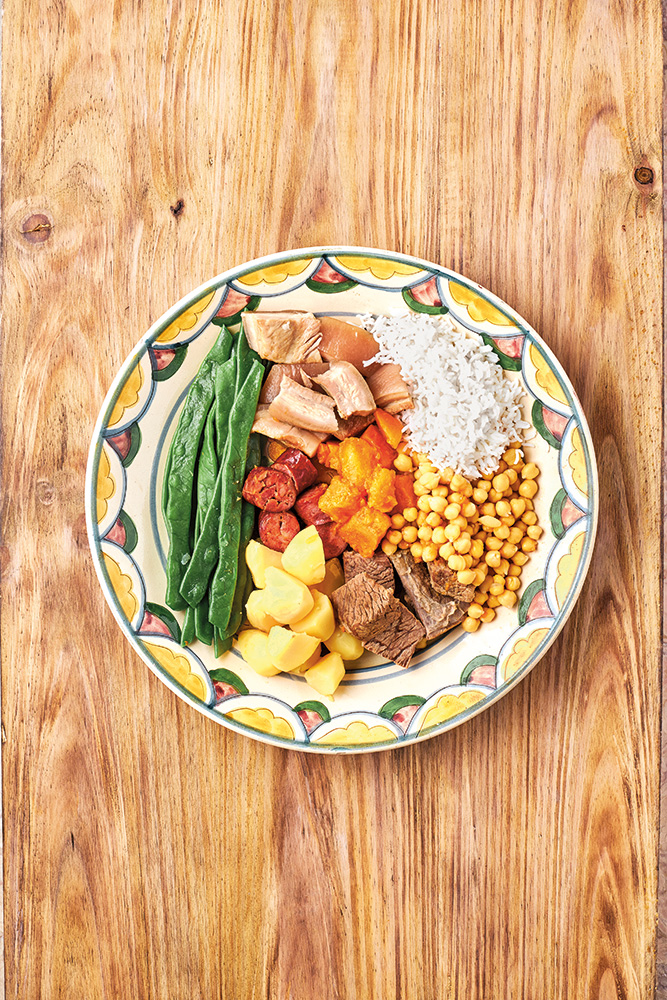
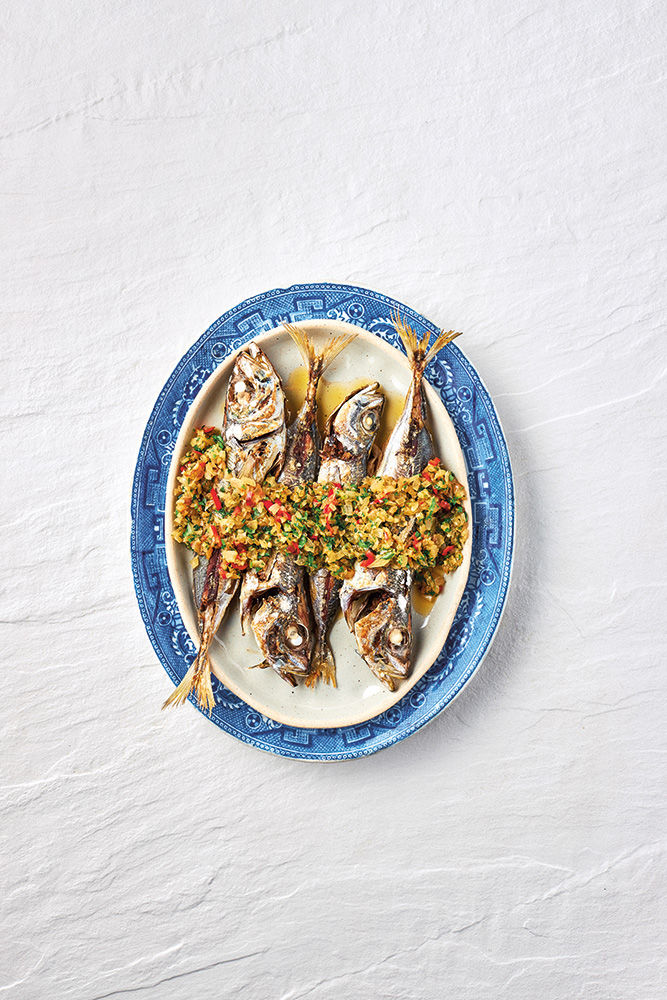
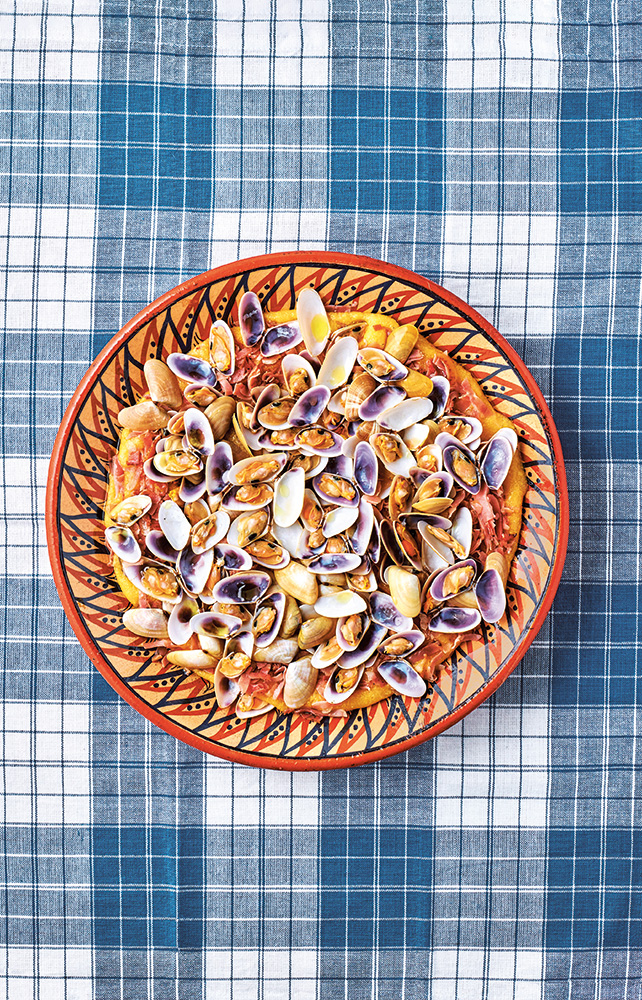
As Carreira sees it, too many people continue to associate Portuguese cooking with a few select dishes — namely, salted cod and custard tarts, perhaps washed down with a nice glass of porto. “Imagine if penne with parmesan was all that someone knew about Italian cuisine,” he says. “Or if beef bourguignon was all that they knew from France.” For another thing, the great gastronomic specialties that define Portugal’s various regions tend to get overshadowed by the hip restaurant scene in the country’s urban centres. “I get excited when someone tells me they didn’t just go to Lisbon for 10 days, but instead went to the middle of the country and had some amazing pig,” he says. (During research trips for the cookbook, he became particularly enchanted with Idanha-a-Nova, a small municipality near the Spanish border.)
Carreira has experienced the difficulty of communicating the nuances of Portuguese cooking before. His first restaurant, Londrino, closed after his attempts to highlight the overlap between Portuguese and Japanese flavours won over critics but failed to resonate with the diners in London’s Bermondsey neighbourhood. “It felt a bit dubious,” he says of the concept he’d presented. “It taught me to really understand the message that I was telling customers.”
Mind you, it took him some time to see the project as a learning experience rather than just a failure. In the short term, Londrino’s 2019 closure plunged him into career crisis. “I was run down emotionally,” he says. “I wanted to do something that required very little of me creatively.” Taking a stab at total reinvention, he submitted a job application to become a tube driver.
Instead, his career path took a different route. Restaurateur Alex Hunter reached out seeking a chef for what became The Sea, The Sea, which opened in Chelsea in 2019. An immediate sensation, the seafood-lover’s paradise is a unique fusion of fishmonger and restaurant, selling fresh cuts and deli lunches by day before switching to a menu of small plates and fine wines by night. Last year, Hunter and Carreira opened a second location in Hackney. Appropriately for a restaurant whose head chef flirted with a career in transit, this one is tucked under a railway arch. (The closest tube stop is Haggerston.)
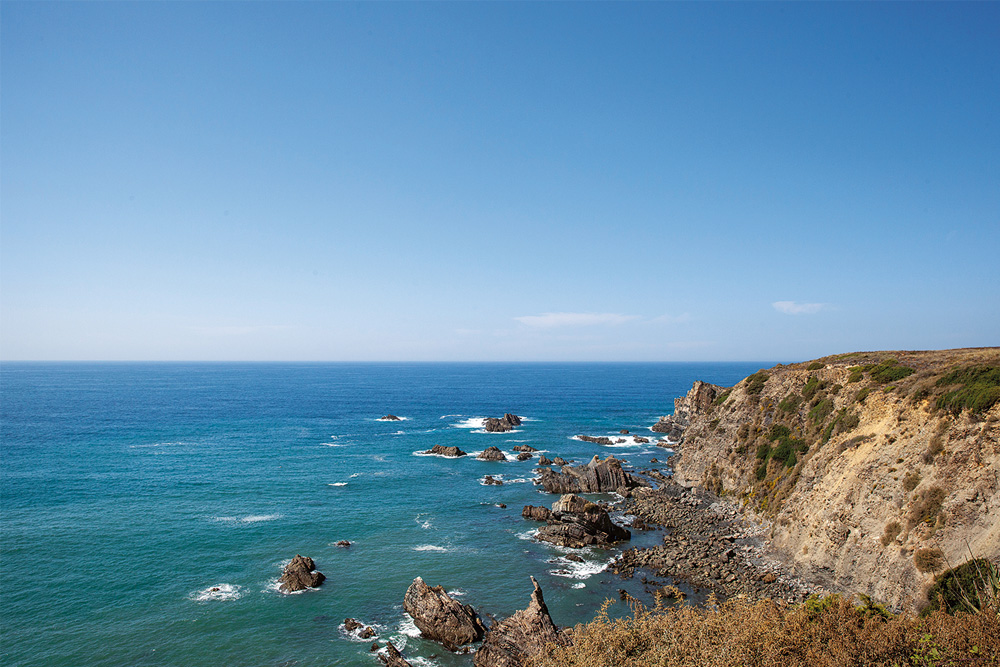
Like its sister establishment, the Hackney outpost of The Sea, The Sea emphasizes nose-to-tail cooking and sustainable fishing practices. “Especially with the water right there, I’ve always found it more interesting to cook with fish,” says Carreira. His restaurants champion low-impact fishery techniques, sourcing mostly from small day-boats that deliver their catch within six hours — and fish only species that they find to be in abundance. “There’s a misconception that you can only get this quality of fish at high-end sushi restaurants,” he says. “But we’re taking sustainability methods, making sure that the fishermen are getting a fair price, and doing our style of creative cooking on top of that.”
That means dry-aging fish to elevate both its flavour and its texture. The technique, which is more common in Japan, requires extensive preparation but allows for a laid-back ambiance during dinner service. “I’ve been to super high-end restaurants where the customers are tense because the chefs are tense, and that’s not what I want,” says Carreira. “We do a lot of work before everyone has arrived to make sure the food is perfect, but also so that people get a bit of us when they sit down.” This level of camaraderie is particularly critical given The Sea, The Sea’s chef’s table set-up: just 12 bar seats arranged horseshoe-style around an open kitchen. “You want to have that joy to tell them the stories behind the dishes.”
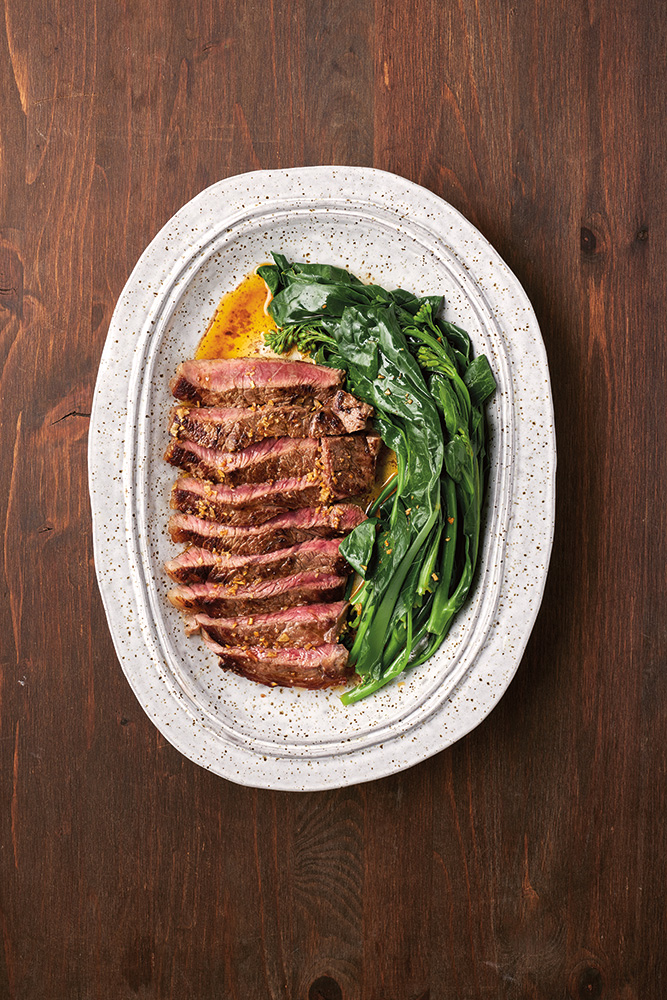
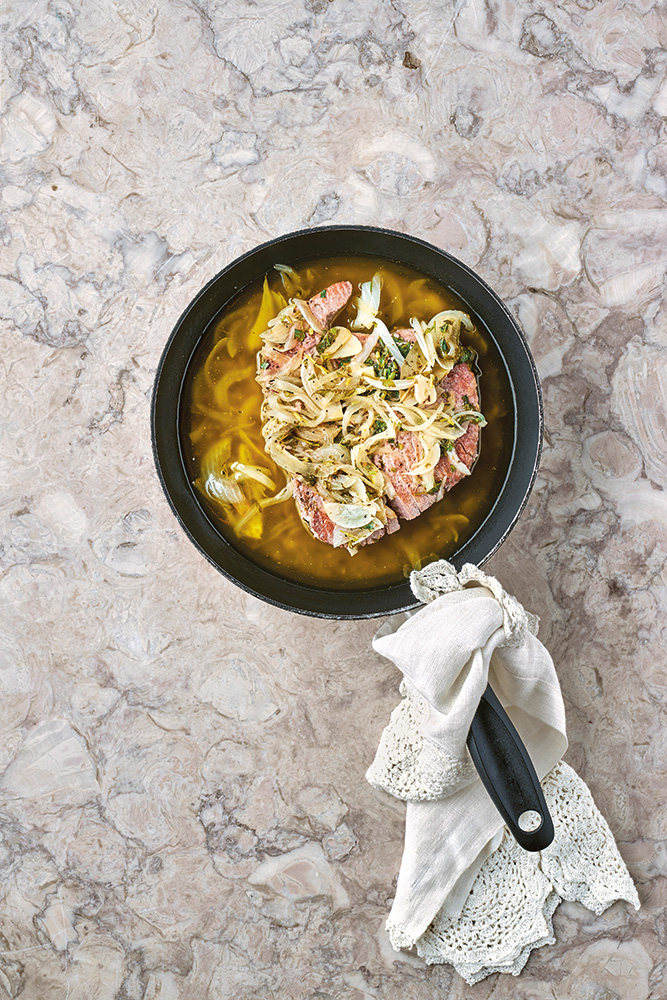
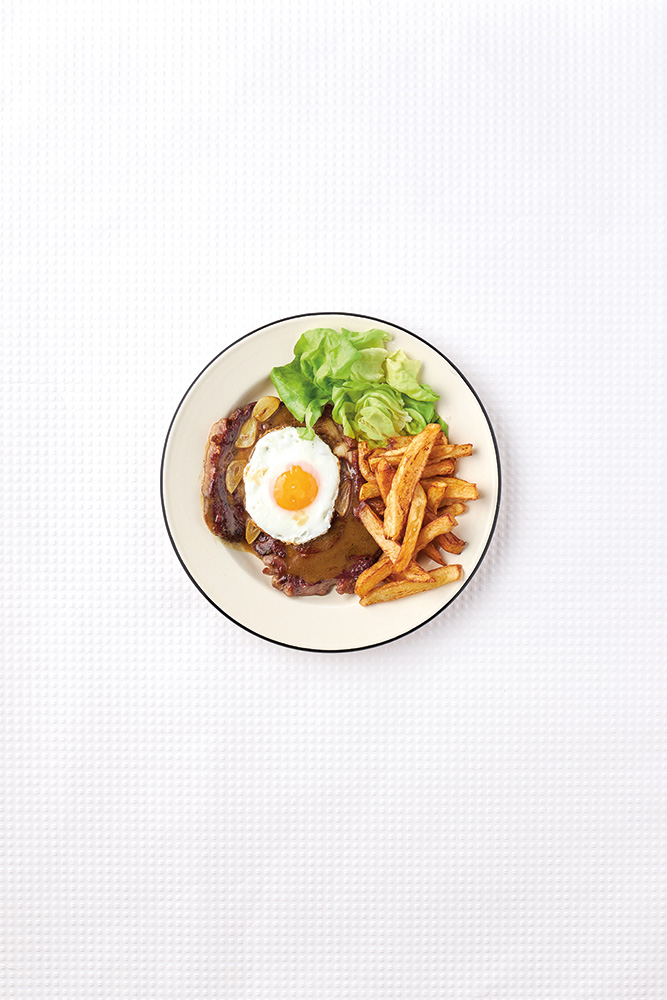
In similar fashion, many of Portugal: The Cookbook’s standout recipes are relaxed meals as rich in backstory as they are in their regard for the planet. In fact, an entire section of the book is dedicated to making good use of a pastits- prime ingredient — stale bread — that might otherwise go to waste. This speaks to modern attitudes about resource consumption, but it turns out it’s also a practice with deep Portuguese roots. In his introduction to the cookbook, Carreira writes, “For the most part of our history, we have been a poor country, with a populace fed on the things the elites rejected. But from such limitations, ingenuity inevitably develops.” A taste of one of Carreira’s bread porridge recipes (Portugal: The Cookbook includes versions with pork, prawns, eggs, and ham, to name just a few) is all that it takes to validate the merits of this approach. If this is what Carreira can do with stale bread, no wonder Londoners are so eager to taste what he can do with the daily catch.
That said, there is still one unusual ingredient that those picking up a copy of Portugal would do well to stock up on: toothpaste. “So much garlic is allowed in traditional Portuguese food,” Carreira laughs. “Something like 90 per cent of the savoury recipes contain garlic. But I didn’t hold back. It’s loads of garlic.” Something tells us Portuguese grandmothers wouldn’t have it any other way.
